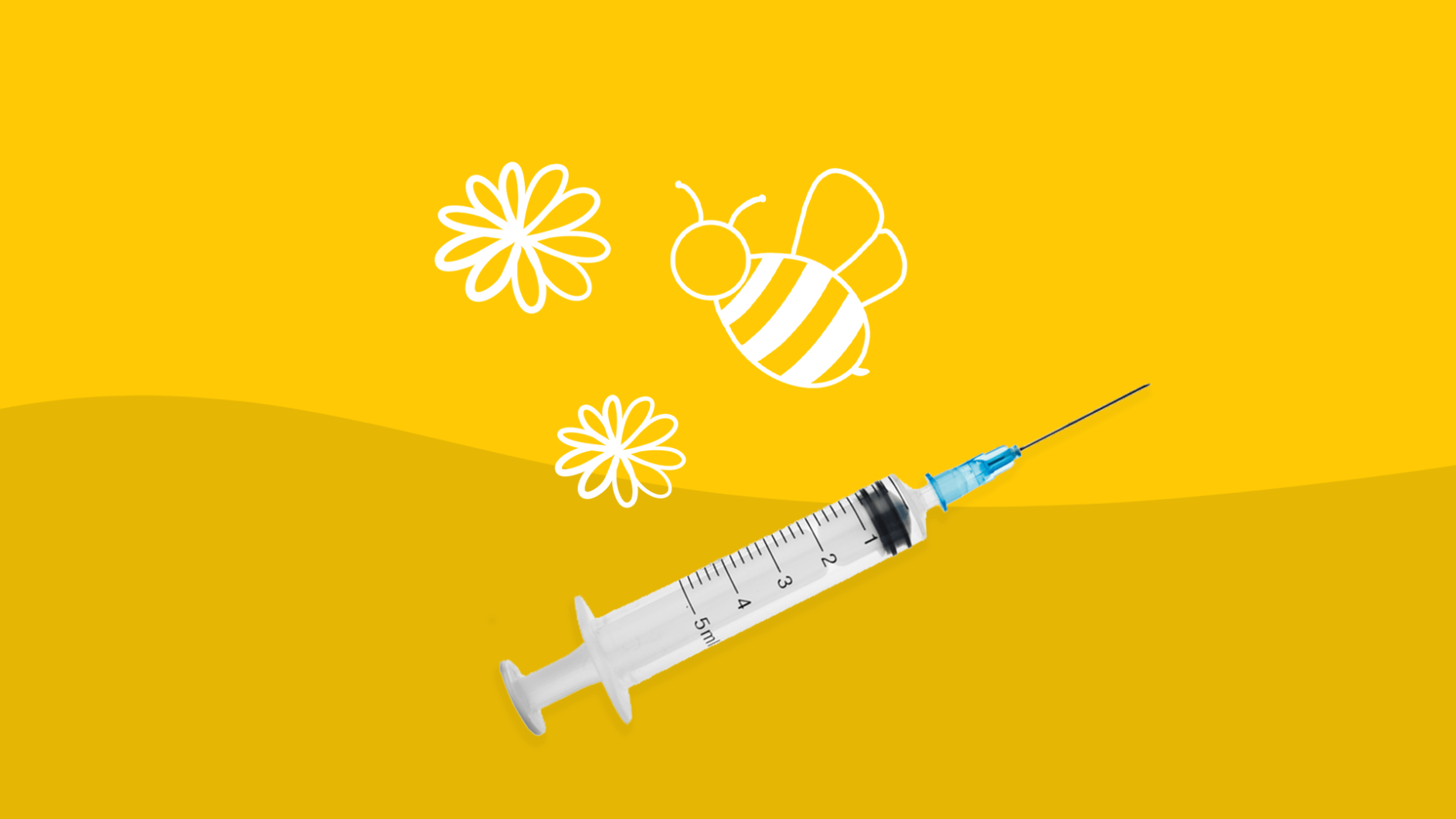Key takeaways
Allergy shots, or allergen immunotherapy, can decrease symptoms of allergic rhinitis, allergic asthma, conjunctivitis, and stinging insect allergy by decreasing sensitivity over time.
Good candidates for allergy shots include people who suffer from allergies year-round or in multiple seasons, do not find relief from other treatments, and seek permanent relief from their symptoms.
The treatment involves a build-up phase of weekly shots that increase in dosage over three to six months, followed by a maintenance phase of less frequent shots. Patients are required to stay 30 minutes post-injection to monitor for serious reactions.
Alternatives to allergy shots include sublingual immunotherapy (SLIT), which involves allergy tablets or drops and is suitable for those afraid of needles or unable to attend weekly appointments, though it’s limited to treating fewer allergens.
Runny nose? Check. Itchy, watery eyes? Check. Constant sneezing? Check. Check. People who are plagued by seasonal—or even year-round—allergies, take regular allergy medication, and are still not getting relief may want to look into allergen immunotherapy, better known as allergy shots. Do allergy shots work? Are allergy shots worth it? Hold on to your tissues and keep reading.
What are allergy shots?
Around 400 million people live with allergic rhinitis across the globe according to the World Allergy Organization. When they’re exposed to pollen, mold, grasses, dust, dust mites, pet dander, and numerous other common allergens, they experience symptoms like sneezing, runny nose, congestion, watery eyes, headache, cough, throat irritation, and itchy mouth, throat, or skin. Allergies can make people downright miserable especially if they’re frequent.
The American Academy of Allergy, Asthma and Immunology defines allergy shots as a long-term treatment that can decrease symptoms of allergic rhinitis (hay fever), allergic asthma, conjunctivitis (eye allergies), and stinging insect allergy. With regular long-term injections of a little bit of allergen (the things people are allergic to), shots decrease sensitivity over time and reduce or eliminate symptoms.
Promethazine, diphenhydramine (the active ingredient in Benadryl), and hydroxyzine are some examples of allergy shots.
Who should consider allergy shots?
There are three groups of people who are good candidates for allergy shots, according to Sima Patel, DO, an allergist at New York Allergy and Sinus Center in New York City:
- People affected year-round, or in two or more seasons
- People who don’t experience relief from other treatments. “If medications aren’t working, that may be an indication for people to start treatment with shots,” Dr. Patel explains.
- People who want permanent relief, for example, if you’re allergic to a pet. Allergy medications can’t cure the reaction, whereas allergen immunotherapy can.
Dr. Patel says that depending on the study you reference, allergy shots can be effective in improving symptoms for up to 85% of patients.
How do allergy shots work?
Allergy shots are a prescription treatment administered by an allergist or immunologist in the office. They’re usually covered by most insurances though a copay may be required for each office visit. In the long run, the cost of injections may be less than taking a daily medication.
Depending on how many allergies someone has, they may require one to four shots per week depending on how many allergens can fit in each vial. “They’re ‘baby shots,’ not the same shot as a vaccine since it’s a very small needle—it feels like a little pinch,” Dr. Patel says.
If people have a lot of allergens—pollen, dust, animal dander, mold, and others—they’re probably looking at four different vials (shots). For those that just have a dust allergy or an animal allergy, only one vial is necessary. There are two phases to treatment:
- Build-up phase: Patients get their shots weekly at the doctor’s office during the build-up phase. During this period, the dose is slowly increased over three to six months.
- Maintenance phase: The maintenance phase involves getting allergy shots less frequently, once or twice per month.
Once someone receives their weekly shot they must remain in the doctor’s office for 30 minutes to make sure they don’t have a serious reaction called anaphylaxis. This can involve swelling, hives, difficulty breathing, or lowered blood pressure—and it can be life-threatening. Though it’s rare, anaphylaxis can happen whether it’s a first allergy shot or the 100th injection. Waiting a half hour is a must after every injection. Mild side effects are also possible, like injection site soreness or allergy symptoms. After all, the shot contains the very allergens someone is allergic to.
Are there any alternatives?
Allergy tablets or drops called sublingual immunotherapy (SLIT) are another, newer form of immunotherapy and involve placing a tablet or liquid drop with the specific allergen under someone’s tongue. These are just as effective as shots and can even be taken at home once you receive them from your allergist. They are a great option if you are afraid of needles, or can’t make it to weekly appointments.
But, each tablet or drop only provides one allergen. “It is not available for prevention of tree pollen allergies, but it is a treatment option that is available for grass, ragweed, and dust mite allergies,” says Dr. Gupta.
Some SLIT brand names include Odactra, Grastek, Oralair, and Ragwitek.
Are allergy shots worth it?
Some people are hesitant to start allergy shots because they require a time commitment. Allergy shots are given over three to five years and can subdue your allergies for several years after finishing treatment, says Ratika Gupta, MD, an allergist at ENT and Allergy Associates in Brooklyn, New York. “However, symptoms can return over time.”
Allergists decide when patients can stop the shots based on their symptoms. At year three if someone has been receiving shots regularly without missing doses and they no longer have symptoms, they can stop. But typically, people still have some mild symptoms, so they’ll need to continue for the full five years. Yes, that’s long but the pay-off can be life-changing for some. Most people find allergy shots worth it to improve their quality of life.




